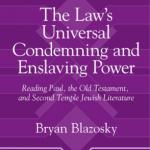Marion Ann Taylor and Heather E. Weir (eds).
Women in the Story of Jesus: The Gospels through the Eyes of Nineteenth-Century Female Interpreters.
Grand Rapids: Eerdmans, 2016.
Available at Eerdmans.
By Jill Firth
The history of Biblical interpretation, long dominated by men, is receiving new impetus through research into women biblical interpreters. A broad sweep of female interpreters are identified in an earlier volume edited by Marion Taylor with Agnes Choi, Handbook of Women Biblical Interpreters: a Historical and Biographical Guide (2012). In the current volume, thirty-one nineteenth-century female interpreters give their comments on the women in the story of Jesus, including Mary of Nazareth, Mary and Martha of Bethany, Anna, the Syro-Phoenician woman, the woman at the well, the woman taken in adultery, Mary Magdalene, Herodias and Salome. The commentators include well-known names such as Christina Rosetti and Harriet Beecher Stowe, as well as others who may be new to twenty-first-century readers.
This volume introduces us to the piety, preaching and scholarship of nineteenth-century women in their own words. The collection is arranged in three sections. Firstly, examples of nineteenth-century women’s piety, secondly, an exploration of women’s preaching and evangelism, and thirdly, women’s biblical interpretation. Each section has an introduction and discussion questions. The chapters include excerpts illustrating various genres including commentary, biography, essays, sermons, children’s lessons, and travel diaries.
Some nineteenth-century women such as Sarah Trimmer and Mary Cornwallis wrote scripture commentaries on the whole bible; others including Christina Rosseti commented on single books. Often these were devotional in nature, though technical scholarship was also displayed, as by the Hebrew scholar Emilie Grace Briggs, B.D. who “laboured on the Hebrew Lexicon and in the preparation of this Commentary” (Psalms, ICC, 1907) with her father, Charles A. Briggs.
While disbarred from preaching in mainline churches, women often preached to other women and by the end of the century, women preachers were recognised in the Salvation Army, some Methodist churches and some Congregational churches. Women including Florence Nightingale wrote sermons which were preached by men, and published sermons by women reached a wider audience. Elizabeth Baxter was a preacher and teacher in the Moody-Sankey crusades, preaching to up to 1500 women each week. She says,
A woman preacher who is sent of God does not need to become a Doctor of Divinity. Let her leave the knotty points which others wrangle over to others, but let her testimony be: “Come, see a Man,” come and look at Jesus, come and receive of Him what I have received of Him. He has told me all the things I ever did, He has searched my heart as no human being could: “is this not the Christ?”
The volume concludes with a selected bibliography of nineteenth-century women’s writings on the gospels, a bibliography, and indexes of names and subjects, and scripture.
Marion Ann Taylor has also edited, with Heather E. Weir Let her Speak for Herself: Nineteenth-century Women Writing on Women in Genesis (2006), and, with Christiana de Groot, Recovering Nineteenth-Century Women Interpreters (2007) and Women of War, Women of Woe (2016). Her commentary, Ruth and Esther, is forthcoming in Zondervan’s Story of God Series. Heather E Weir has also co-edited with Nancy Calvert-Koyzis, Strangely Familiar: Protofeminist Interpretations of Patriarchal Biblical Texts (2009) and Breaking Boundaries: Female Biblical Interpreters Who Challenged the Status Quo (2010).
Women in the Story of Jesus offers succinct extracts from nineteenth-century writers, made accessible by the clear introductions to the writers and their texts. It is an excellent resource for teachers wishing to widen the range of viewpoints in their bibliographies. The brevity of the extracts admirably fits them as assigned readings for the classroom. General readers can also enjoy this collection as a window into women’s thinking about the Bible in an earlier century.
Jill Firth is a lecturer in Hebrew and Old Testament at Ridley College, Melbourne. She is writing on Psalms and Jeremiah.











